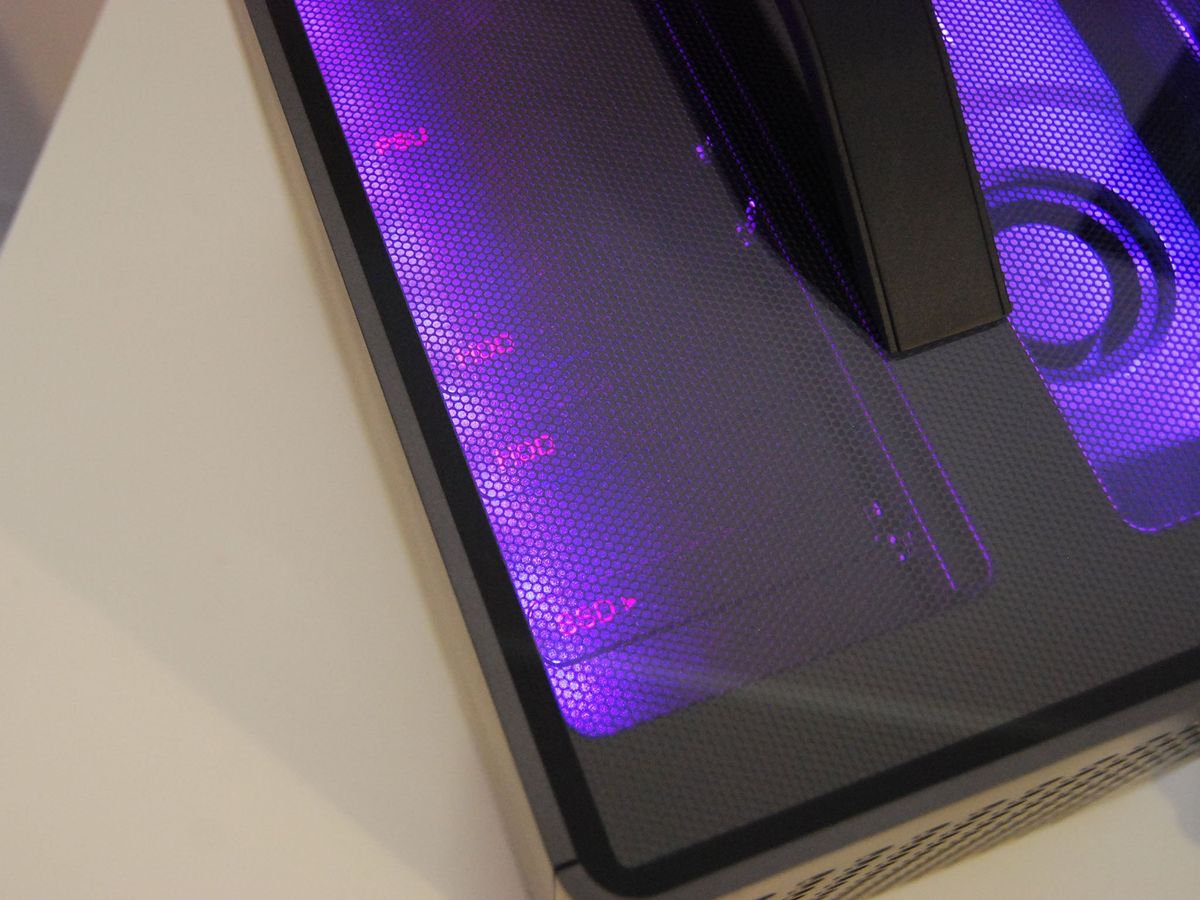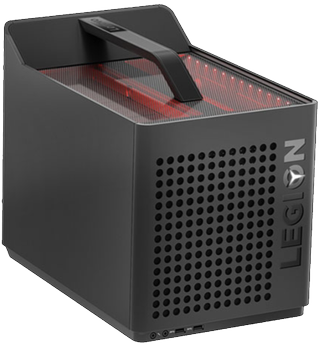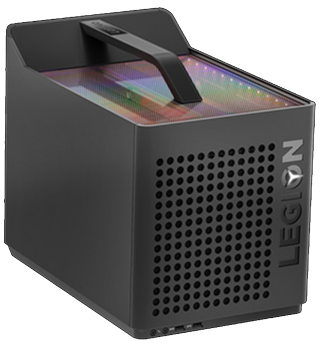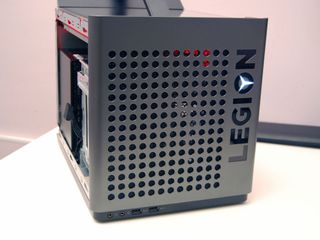Lenovo Legion C530 Cube vs. C730 Cube: Which gaming PC should you buy?


More affordable
The Legion C530 Cube has a far cheaper starting price compared to the C730 Cube, but its hardware won't match up when it comes to raw performance.
For
- Cheaper starting price
- Available with AMD and NVIDIA hardware
- Tons of ports
- Easily accessible hardware
Against
- Hardware options not as powerful

More power
The Legion C730 Cube is cut out for those who want the best performance possible from a compact pre-built, but it does cost quite a bit more — in most cases — than the Legion C530 Cube.
For
- Available with AMD and NVIDIA hardware
- 9th Gen Intel processor option
- NVIDIA RTX 2070 available
- Customizable RGB lighting
Against
- Higher starting price
The Legion C530 and C730 Cubes are built in essentially the same case and have some similar hardware options, though upon closer inspection it's clear that they're in different classes when it comes to overall performance.
Legion C530 Cube vs. Legion C730 Cube tech specs
| Header Cell - Column 0 | Legion C530 Cube | Legion C730 Cube |
|---|---|---|
| Processor | 8th GenIntel Core i5-8400Intel Core i7-8700 | 8th GenIntel Core i7-8700Intel Core i7-8700K9th GenIntel Core i7-9700K |
| RAM | 8 GB, 16 GBDDR4-2666MHz | 8 GB, 16 GBDDR4-2666MHz |
| Storage | 1 TB HDD + 16 GB Optane memory1 TB HDD + 128 GB PCIe SSD | 1 TB HDD + 128 GB PCIe SSD1 TB HDD + 256 GB PCIe SSD |
| Graphics | AMD Radeon RX 570 (4 GB)NVIDIA GTX 1050 Ti (4 GB)NVIDIA GTX 1060 (6 GB) | AMD Radeon RX 570 (4 GB)NVIDIA GTX 1060 (6 GB)NVIDIA GTX RTX 2070 (8 GB) |
| Motherboard | B360 series chipset | Z370 series chipset |
| Ports | Front:Two USB-A 3.03.5 mm headset jack3.5 mm mic inRear:Two USB-A 3.1 (Gen 1)Two USB-A 3.1 (Gen 2)Two USB-A 2.0RJ45 Ethernet3.5 mm audio(Video ports based on GPU) | Front:Two USB-A 3.03.5 mm audio3.5 mm microphoneRear:Four USB-A 3.1Two USB-A 2.0RJ45 Ethernet3.5 mm audio(Video ports based on GPU) |
| Wireless | Realtek 8822EE802.11ac (2 x 2)Bluetooth 4.2 | Realtek 8822EE802.11ac (2 x 2)Bluetooth 4.2 |
| Keyboard | Included | Included |
| Mouse | Included | Included |
| Power supply | 450 W | 450 W500 W |
| Weight | From 19.8 pounds (8.9 kg) | From 19.8 pounds (8.9 kg) |
| Dimensions | 9.09 inches x 13.07 inches x 9.53 inches(231 mm x 332 mm x 242 mm) | 9.09 inches x 13.07 inches x 9.53 inches(231 mm x 332 mm x 242 mm) |
Legion C530 Cube vs. Legion C730 Cube design and features


Lenovo used the same compact square case for both the C530 and C730 Cube, which resembles something closer to a deep fryer than a classic PC case. Both have handles on top for easy carrying, both have a window on top that gives a glimpse into the hardware, and both have a grate and Legion logo on the front for extra style points.
These PCs are set up with the motherboard in the middle and hardware on either side. On the right side are the processor (CPU) and graphics card (GPU), while the left side holds the bays for hard-disk drives (HDD) and solid-state drives (SSD) as well as the power supply unit (PSU). Panels on both sides of the case can be removed without the need for tools, giving you quick and easy access to the internals for tweaks and upgrades.
The biggest difference you'll no doubt see when it comes to appearance is the internal lighting. The C530 is only available with red lighting and can't be customized, while the C730 has fully customizable RGB lighting with 16.8 million color combinations. If you like all of your PC gear to match, you'll likely have an easier time with the more expensive C730.
As for ports, both have the same basic setup — the video ports will differ depending on which GPU you choose — with two USB-A 3.0, 3.5 mm audio, and 3.5 mm mic on the front for easy headset connectivity. On the back, you have four USB-A 3.1, two USB-A 2.0, RJ45 Ethernet, and another 3.5 mm audio jack.
Legion C530 Cube vs. Legion C730 Cube performance and price
There are a few standout differences between these PCs when it comes to performance. The Legion C530 uses a motherboard with a B360 chipset, which means there's no option for overclocking (even with an overclockable CPU) and it also lacks some RAID support for the storage. The Legion C730, on the other hand, uses a motherboard with a Z370 chipset, leaving it open to overclocking with the available Core i7-8700K and Core i7-9700K CPU options. If you're interested in a RAID storage setup, it can handle PCIe and SATA.
The C530 does start at a considerably lower price (about $748) for a configuration with 8th Gen Intel Core i5-8400 CPU, 8GB of DDR4 RAM, a 1TB HDD coupled with 16GB of Intel Optane memory, and an NVIDIA GTX 1050 Ti GPU. This is enough power for entry-level gaming and should be able to power most popular esports titles with a smooth framerate at 1080p. You can jump up to a $1,063 configuration with a Core i7-8700 CPU, 8GB of DDR4 RAM, a 1TB HDD coupled with a 128GB PCIe SSD, and an NVIDIA GTX 1060 GPU with 6GB of GDDR5 VRAM, which is quite a bit more powerful and capable of running most modern AAA games at 1080p with at least a 60 frames-per-second (FPS) average. Finally, for about $1,250, there's a configuration with Core i7-8700 CPU, 16GB of RAM, 1TB HDD with 128GB PCIe SSD, and AMD Radeon RX 570 GPU with 4GB of GDDR5 VRAM.
Get the Windows Central Newsletter
All the latest news, reviews, and guides for Windows and Xbox diehards.

The C730 Cube starts at about $1,292, but it has an 8th Gen Intel Core i7-8700K CPU (which is overclockable), 16GB of DDR4 RAM, a 1TB HDD coupled with a 128 GB PCIe SSD, and an NVIDIA GTX 1060 GPU with 6 GB of GDDR5 VRAM. You're going to get similar performance here compared to the $1,063 Legion C530, so the question comes down to whether or not you'll take advantage of RAID support, an overclockable CPU, and the customizable RGB lighting.
Those who want the best performance possible in this type of PC will have to go with the Legion C730, as it maxes out with some serious power. For about $1,880, you get a 9th Gen Intel Core i7-9700K CPU with eight cores and a turbo frequency up to 4.90 GHz, 16 B of DDR4 RAM, a 1TB HDD coupled with a 256GB PCIe SSD, and a new NVIDIA RTX 2070 GPU with 8GB of GDDR5 VRAM. With this rig, you'll have no problem running any modern games at a high framerate, but it will certainly cost you a lot more than the other options. If it's not in your budget, you'll want to go with the C530 Cube.
Grab the Legion C530 Cube for a cheaper option that's not as powerful
Don't care about overclocking, customizable RGB lighting, and RAID support for your storage drives? The Legion C530 Cube can be had for significantly less money and will still offer a stellar gaming experience.

Fewer bells and whistles for less money
This gaming PC comes in a sturdy, compact chassis with ample airflow, and it allows for easy entry and tinkering. Baseline models are set up to deliver a smooth 1080p gaming experience with most modern titles, and all models come with a basic keyboard and mouse.
The Legion C730 Cube is better suited for those who want the best performance
You'll pay more for the Legion C730 Cube, but those who want to overclock, set up drives with RAID support, and customize lighting will have their wishes granted here. You'll also be able to get far more powerful hardware for superior performance.

Cale Hunt brings to Windows Central more than eight years of experience writing about laptops, PCs, accessories, games, and beyond. If it runs Windows or in some way complements the hardware, there’s a good chance he knows about it, has written about it, or is already busy testing it.